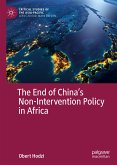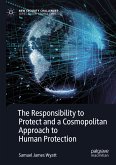The book tells (and analyzes) the story of the United Nations multidimensional stabilization operation in Mali (MINUSMA), which closed at the end of the 2023 after almost a decade of existence. MINUSMA, which is the UN operation that has by far attracted the most media attention, has been the laboratory of contemporary peacekeeping, combining several interesting elements. It came on the tail of a French-African military intervention (rehatting African contingents), operated 'in parallel' to various counterterrorism forces (
Barkhane and JF G5 Sahel). It has been the deadliest peace operation due to asymmetric threats but has also managed to adapt to a new environment and has witnessed a 'return' of European troop contributors to peacekeeping in Africa but also a significant contribution from China. Most importantly, MINUSMA ultimately became caught in the geopolitical crossfire, with a host government led by a military junta and supported by Russia (and the
Wagner Group) defying the Security Council, in the context of a return of East-West rivalries exacerbated by the 2022 Ukraine invasion.
Arthur Boutellis is a Non-resident Senior Adviser at the International Peace Institute (IPI) and teaches at graduate-level at Columbia University and Sciences Po Paris. He previously worked with the UN in New York, Jerusalem, Burundi, Chad and the Central African Republic, Haiti, and Mali.
Dieser Download kann aus rechtlichen Gründen nur mit Rechnungsadresse in A, B, BG, CY, CZ, D, DK, EW, E, FIN, F, GR, HR, H, IRL, I, LT, L, LR, M, NL, PL, P, R, S, SLO, SK ausgeliefert werden.









